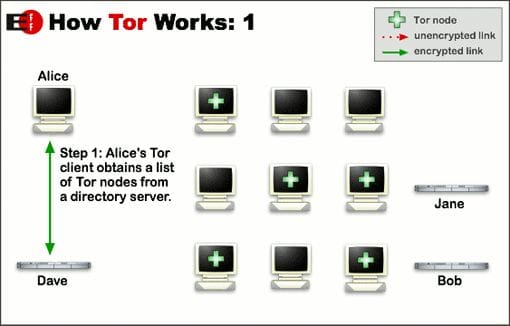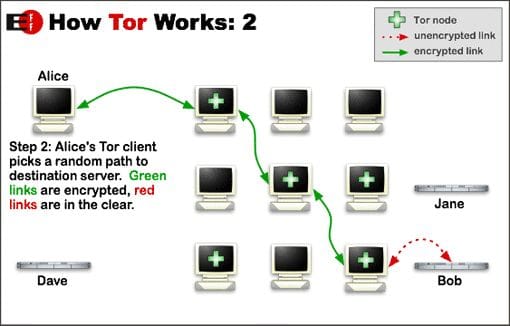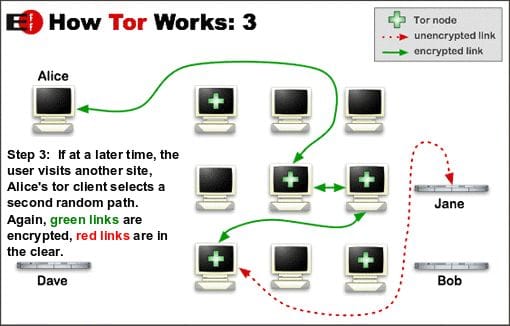A Solution to Online Privacy Concerns: Anonymous Browsing

With so much press surrounding the NSA and privacy concerns, it's important to know the alternatives to providing Internet information through your browser. While not as nostalgic a solution as Russia's, anonymous browsing could be the perfect revolution for the Internet Surveillance Age. In order to understand this type of browsing, we need to examine how "normal" browsers work.
Cookies are the key browser tool in decoding, tracking, and storing a person's information. Every click made, every site visited, every video watched is recorded and compiled into bits of data (cookies) and then distributed across the world. This is how ad targeting and search optimization function. It's also how the government may ("or may not") be watching citizens' online activity. We've already seen these issues sprout up in recent months.
The answer to this recent breach in federal trust is simple: if you don't want to be identified, then browse the Internet anonymously.
Anonymous browsing is not a new technology. With its origins in the U.S. Navy, anonymous browsing (also referred to as "Onion Routing") presents a way to work around the current cookie-based infrastructure set in place by browsing giants Google Chrome, Mozilla Firefox, and Microsoft Internet Explorer.
Although these browsers do provide a way to monitor your cookies, and even allow some cookies to be blocked, many websites depend on cookies to function properly. Additionally, any site hosting a Google search engine (of which there are hundreds of thousands) is, by definition, tracking search results. Anonymous browsers such as Tor function completely independent of this model.
Instead of relaying your information over a public network, where virtually anyone can track your data, anonymous browsers work by relaying your information across a random tunnel of nodes -- computers specifically designed to carry on your information. These nodes receive your query and send them to another node randomly, erasing the infopath before them in the process. This is repeated until you see it on your screen.
Here's a visual explanation: Source: torproject.org

Source: torproject.org

Source: torproject.org

This path-scrambling not only disguises what information a browser seeks, but effectively makes tracking the information back to a specific computer virtually impossible for anyone to spy on (for now).
This ability to browse unseen has given way to what is being called the "Deep Web." Tor can host its own sites within its anonymous network, without the threat of censorship or interference. This liberty has produced an uncountable amount of new services and forums throughout the Deep Web, some more well known (infamous) than others. Silk Road, the Deep Web's largest black market, allows users to trade scarcer commodities anonymously between buyer and seller.
Wait, can't digital purchases be monitored online? Surely the government can trace a credit card paper trail. That's where the burgeoning phenomena of crypto-currency comes into play. The biggest and most well-known of these currencies, Bitcoin, works by encrypting a digital wallets' address and sending it directly to the seller of the product being purchased, without a third party.
Here's a video that serves as a nice introduction to BitCoin:
https://www.youtube.com/watch?feature=player_embedded&v=Um63OQz3bjo#at=30
So why aren't these revolutionary services being covered in the mainstream media? For one, the federal government (especially the NSA) may see the freedom to whistleblow without consequences as a threat to their current data-mining infrastructure. Indeed, Jacob Appelbaum, a core founder of Tor, has been evading government forces for years after his involvement with the project, as well as Wikileaks.
Another opponent to anonymous browsing is the business sector. With services that conceal identity and block tracking cookies, the algorithms that govern the current ad targeting become null and void. Everything is niche marketed now; nothing appeals to everybody. Once the ground from which this philosophy is based on starts to sway, targeted online marketing could become a memory, driving down potential profits.
These opponents of the Deep Web have a vested interest to keep new users away from anonymous browsing. Regardless of these forces, there are already 500,000 Tor users relaying information every day, with over $4 billion in Bitcoins transferred so far.
Anonymous browsing allows its users to surf the Web without the threat of being monitored. Although this technology isn't perfect, and there are a lot of questionable sites on the Deep Web (remember, there's no censorship), it does provide a way to route around the federal government and advertisers. With more people using these types of services, the liklihood of "being seen" diminishes.
Perhaps this is the revolution America has been aching for.




